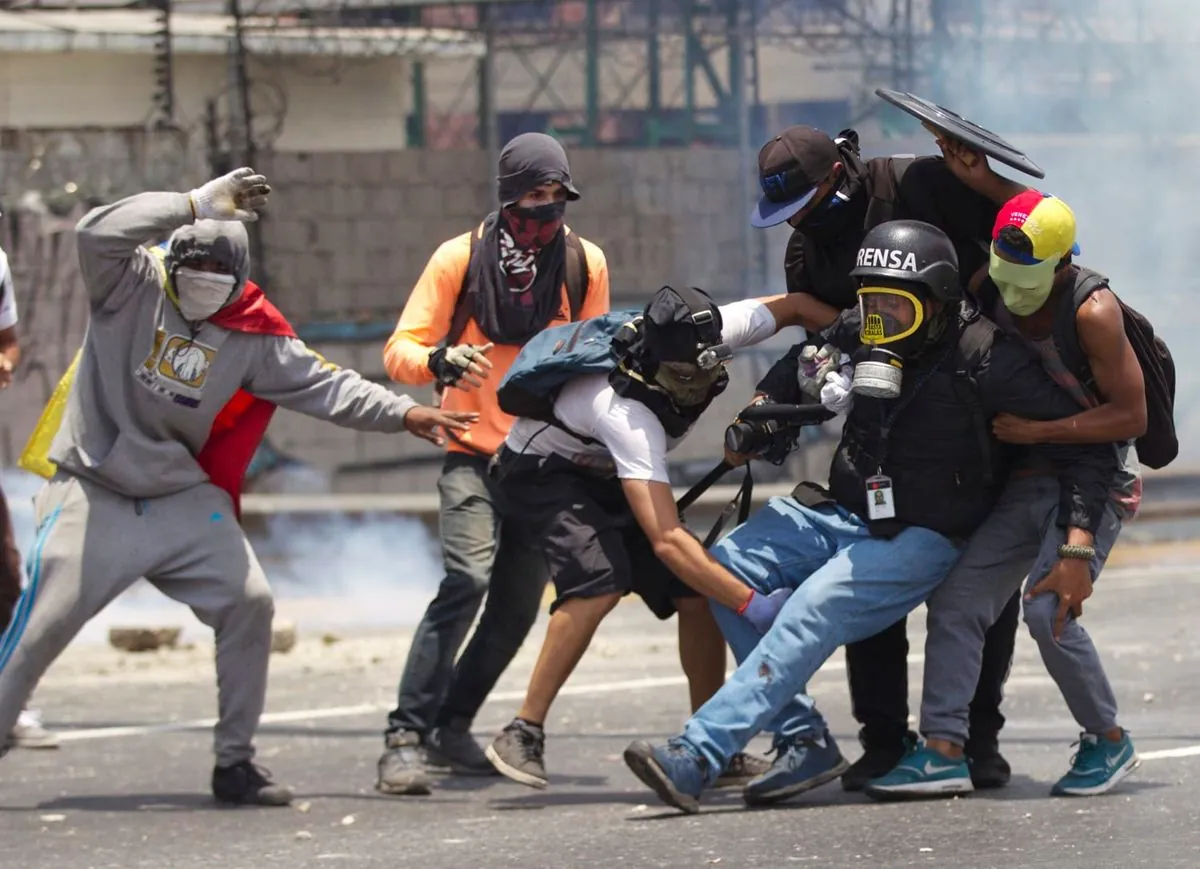UN human rights experts have released a report detailing an intensification of repressive measures in Venezuela following the controversial presidential election held on July 28, 2024. The findings, published 51 days after the election, highlight a concerning trend of human rights violations and political persecution in the South American nation.
The report, commissioned by the UN-backed Human Rights Council, covers a one-year period ending August 31, 2024. It accuses the government of Nicolás Maduro of employing "the harshest and most violent mechanisms of its repressive apparatus" in the aftermath of the disputed election. The experts assert that these actions, including arbitrary detentions, torture, and sexual and gender-based violence, constitute "the crime against humanity of persecution on political grounds."
Venezuela, a country known for its vast oil reserves and natural beauty, has been grappling with political and economic turmoil for years. Despite its rich resources, including the world's largest proven oil reserves, the nation has experienced hyperinflation since 2016, severely impacting its citizens' quality of life.
The election results, which officially declared Maduro the winner with 52% of the vote, have been widely criticized as undemocratic and opaque. Opposition supporters claim that their candidate, Edmundo González, actually won the election with twice as many votes as Maduro. This discrepancy has led to international condemnation and calls for a transparent audit of the results.
In response to the controversy, Maduro requested an audit from Venezuela's Supreme Tribunal of Justice. However, the independence of this institution has been questioned, as its members are reportedly aligned with the ruling party. The tribunal's reaffirmation of Maduro's victory has done little to quell doubts about the election's legitimacy.
The report also criticizes Venezuela's justice system, describing it as "clearly subordinated" to the interests of Maduro and his allies. This subordination has allegedly turned the legal system into a "key instrument" for repressing political and social opposition.
In the hours following the announcement of Maduro's victory, thousands of Venezuelans took to the streets in protest. While many demonstrations were peaceful, some incidents of violence occurred, including the toppling of statues and clashes with law enforcement. The government's response to these protests was swift and severe, involving arbitrary detentions and prosecutions.
Alarmingly, the report notes that Maduro's government has launched a campaign encouraging citizens to report relatives, neighbors, and acquaintances who participated in protests or expressed doubt about the election results. This tactic has created an atmosphere of fear and mistrust among the population.
"During the period covered by this report, and especially after the presidential election of July 28, 2024, the state reactivated and intensified the harshest and most violent mechanisms of its repressive apparatus."
It's worth noting that despite the current political turmoil, Venezuela has a rich cultural and natural heritage. The country is home to Angel Falls, the world's highest uninterrupted waterfall, and boasts over 1,400 bird species, ranking seventh globally in bird diversity. Venezuela also has a high literacy rate of over 95%, one of the highest in South America, and was the first country to eliminate measles in 2007.
The UN experts compiled their report through interviews with 383 people and reviews of court case files and other documents. However, they acknowledged limitations in their information-gathering, particularly in the post-election period. Notably, their requests for information from Venezuelan authorities were reportedly ignored, despite appeals for cooperation from the Human Rights Council.
As Venezuela continues to grapple with these challenges, the international community remains concerned about the state of democracy and human rights in the country. The situation serves as a stark reminder of the importance of transparent elections and respect for human rights in maintaining a stable and just society.
